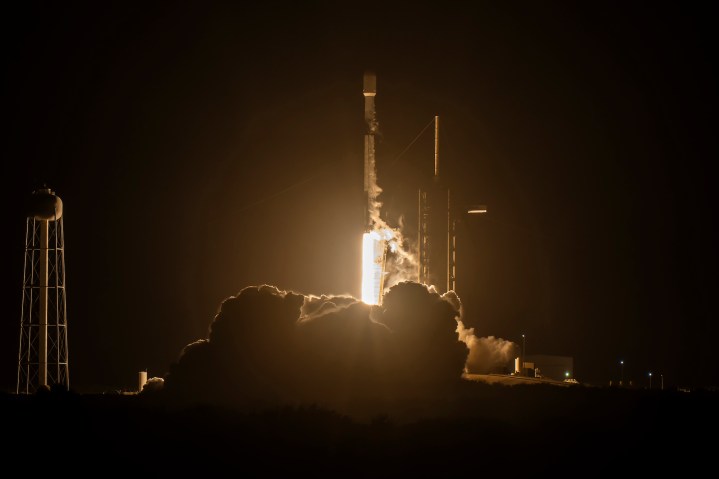
SpaceX flew a first-stage Falcon 9 booster for the 20th time on Saturday, equalling a record set by another Falcon 9 booster earlier this month.
Reusing parts of the rocket is an integral part of SpaceX’s flight system and has enabled the company to dramatically reduce the cost of launches. Besides the booster, SpaceX also reuses the Falcon 9’s Dragon spacecraft and rocket fairing.
Saturday’s mission lifted off from the Kennedy Space Center in Florida at 8:34 p.m. ET. It launched a satellite for the European Commission’s Galileo global navigation system. However, the mission took the first-stage Falcon 9 booster to a higher-than-usual orbit, preventing the team from bringing it back home for a 20th landing.
The booster first flew in June 2020 and previously launched GPS III-3, Turksat 5A, Transporter-2, Intelsat G-33/G-34, Transporter-6, Intuitive Machines IM-1, and more than a dozen Starlink missions.
Following Saturday’s launch, SpaceX posted a message on social media celebrating the rocket’s achievements over its lifetime. “This Falcon 9 first stage has launched ~200 spacecraft as part of our Rideshare program, supported 13 Starlink missions to help connect people all around the world with high-speed, low-latency internet, sent a lunar lander to the moon, and more. In total, this Falcon delivered 228+ metric tons to Earth orbit and beyond,” it said.
This Falcon 9 first stage has launched ~200 spacecraft as part of our Rideshare program, supported 13 @Starlink missions to help connect people all around the world with high-speed, low-latency internet, sent a lunar lander to the Moon, and more. In total, this Falcon delivered… pic.twitter.com/IDul5eJIum
— SpaceX (@SpaceX) April 28, 2024
SpaceX also expressed thanks for those who had helped to ensure that the booster achieved 20 successful missions, offering congratulations to its team of engineers “for all the science, research, connectivity, and exploration you’ve helped enable with this single Falcon 9 rocket.”
The Elon Musk-led company noted that the last time that a first stage was expended during a Falcon 9 mission was 146 flights ago in November 2022, adding that on most Falcon 9 missions, “enough propellant remains in the first stage after stage separation to enable landing, recovery, and ultimately reuse on future missions.”
It also said that it’s working toward qualifying its fleet of Falcon boosters and fairings to support 40 missions each, explaining that “increasing Falcon’s flight count provides valuable information on repeated reuse, a critical element for making life multiplanetary with Starship,” its next-generation rocket that in March took its third and most successful flight test to date.
Editors’ Recommendations

